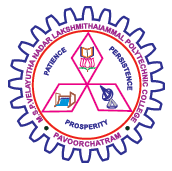Established in 1985,It is the professional practice of designing and developing infrastructure projects with design, budgeting, surveying & construction
Why MSPVL is best for Civil Engineering
-
You will be taught by experts with a passion for the subject
-
Our courses reflect all the latest developments and the needs of industry
-
You'll have privileged access to state-of-the-art facilities
-
We offer a wide range of scholarships, Add-on Course, summer placements, industrial seminars and exclusive employment opportunities
-
We train future leaders by encouraging you to think in innovative ways and challenge existing practice
Scope Of Civil Engineering
Civil engineering has been around since the time civilisations started constructing infrastructure, huts, monuments, and such structures. The civil engineering industry has massively evolved over the course of time. From building unstable huts and muddy pathways, humans have come around to building complicated structures like bridges, dams, canals, express highways, palaces, wondrous monuments and much more. Over time the skills required by civil engineers have also largely changed. Now civil engineers are expected to have detailed knowledge and practical skills that they can implement throughout their career in civil engineering.
To get a better idea about what the course is actually like, let us take a look at some of the important subjects present in Civil Engineering course.
- Engineering Mechanics
- Construction Materials and Construction Practice
- Surveying II
- Estimating and Costing I
- Structural Engineering
- Soil Mechanics and Foundation Engineering
- Construction Management with MIS
Types of Job Roles Civil Engineer
The most popular Civil engineering job profiles are given below:
- Structural Engineers:They design, plan and supervise the construction of infrastructural projects like buildings, bridges, and so on. They also take care of alteration and extension to existing properties or structures.
- Geotechnical Engineers :The primary responsibility of Geotechnical engineers is to create projects and find solutions to the problems that are related to geology.
- Site Engineers : The take responsibility for security, safety, health, organizing, supervising material and people working at the site. They are part of the site management team.
- Construction Engineers:The main task includes - to plan, direct, and supervise large construction projects. They act as leader and middleman on construction projects and ensure everything about the project is safe, smooth and structurally sound.
Top Recruiting industries For Skilled Automobile engineers
There will be always a huge demand for skilled civil engineers in the following top industries:
- construction
- Infrastructure
- oil & Gas sectors
- Indian Railways
- National Highway Authority of India(NHAI)
- Cement Corporation of India
- Steel Authority Of India Ltd.
- State public work department(SPWD)
Course Outline:
III Semester
- Engineering Mechanics
- Construction Materials and Construction Practice
- Surveying I
- Civil Engineering Drawing I
- Material Testing Lab I
- Surveying Practice I
- Computer Application Practical
IV Semester
- Theory of Structures
- Transportation Engineering
- Surveying II
- Estimating and Costing I
- Material Testing Lab II
- Surveying Practice II
- CAD in Civil Engineering Drawing I
V Semester
- Structural Engineering
- Environmental Engineering and Pollution Control
- Elective Theory-I
- Advanced Construction Technology
- Remote Sensing and GIS
- Soil Mechanics and Foundation Engineering
- Water Resources Management
- Civil Engineering Drawing II
- Construction Practice Lab
- CAD In Civil Engineering Drawing II
- Life and Employability Skill Practical*
VI Semester
- Construction Management with MIS
- Hydraulics
- Elective Theory-II
- Steel Structures
- Town Planning
- Earthquake Engineering
- Building Services
- Estimating and Costing II
- Hydraulics Lab
- Computer Applications In Civil Engineering Practice
- Project Work
